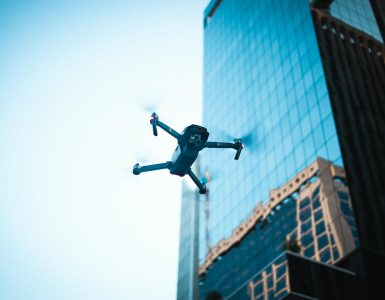Remember those futuristic gadgets from your favorite sci-fi flicks? The flying cars, the robot butlers, the virtual reality escapes? They might not be *quite* here yet, but some seriously cool stuff is happening that makes those fantasies feel a lot less fantastical these days. Let’s dive into how science fiction’s wild ideas are becoming surprisingly real.
AI: From HAL 9000 to Siri (and Beyond)
Artificial intelligence. The very words conjure images of sentient computers, rogue robots, and existential threats. While we’re not quite at the level of Skynet just yet (thank goodness!), AI is already woven into the fabric of our daily lives. Think Siri, Alexa, the recommendation algorithms that seemingly know what you want before you do, and even the self-driving cars slowly but surely taking to the roads.
The leap from these early AI applications to something more akin to HAL 9000 is less about a technological breakthrough and more about ethical considerations and societal adaptation. We’re grappling with the implications of AI bias, job displacement, and the potential for misuse. Sci-fi has given us plenty of cautionary tales, and it’s crucial we heed their warnings as AI develops.
Virtual and Augmented Reality: Stepping Into the Metaverse (Sort Of)
Remember the clunky VR headsets of the early days? The ones that made you look like a goofy astronaut? Things have come a long way. VR and AR are transforming gaming, education, and even how we interact with the world around us. While a fully immersive, *Ready Player One* style metaverse remains a bit of a dream, the building blocks are clearly in place. What Are the Possibilities of Interstellar Travel?
From virtual tours of museums to remote surgery using haptic feedback, these technologies are no longer niche hobbies. Their potential to revolutionize communication, training, and entertainment is vast, and the evolution towards more comfortable, seamless integration promises an even more significant impact in the near future.
Space Exploration: One Giant Leap Towards Mars (and Beyond)
Space travel has always been a cornerstone of science fiction. From the moon landings to the ongoing exploration of Mars, reality is slowly catching up with fiction. Private companies like SpaceX and Blue Origin are making significant strides in making space travel more accessible, pushing the boundaries of technology and challenging the old paradigms.
The prospect of establishing a human presence on Mars, previously relegated to the realm of science fiction, is now within our grasp. The challenges remain immense – sustaining life in a harsh environment, developing efficient transportation methods – but the ambition is real, driven by both scientific curiosity and a desire to secure humanity’s future beyond Earth.
Biotechnology and Genetic Engineering: Designer Babies and Beyond?
Genetic engineering and biotechnology – topics usually explored in sci-fi thrillers – are rapidly advancing. CRISPR technology, for instance, allows scientists to edit genes with remarkable precision, opening doors to curing genetic diseases and potentially enhancing human capabilities. The ethical implications, however, are far-reaching.
The possibility of “designer babies” – selecting desirable traits for offspring – raises complex ethical dilemmas. Sci-fi has explored the potential consequences of such technological advancements, highlighting the dangers of genetic inequality and the erosion of human diversity. These are conversations we need to be having now, before these technologies become widespread.
Robotics and Automation: Friends or Foes?
Robots are no longer confined to factory floors. They’re becoming increasingly sophisticated and capable, taking on tasks ranging from surgery to customer service. From the friendly robots in *Star Wars* to the more menacing ones in *Terminator*, fiction has given us a spectrum of possibilities.
The increasing integration of robots into our daily lives raises questions about job security and the potential for human displacement. While robots can automate repetitive tasks, freeing humans for more creative and engaging work, the transition needs careful management to ensure a just and equitable future.
The Internet of Things (IoT): A Connected World
The concept of a “smart home” – devices connected to the internet, communicating with each other, and anticipating your needs – is becoming increasingly common. This interconnectedness, while offering convenience and efficiency, also poses security risks and raises privacy concerns. Sci-fi often depicts dystopian futures where such technologies are used for surveillance and control, a warning that should inform our approach to the development and implementation of IoT technology.
Conclusion: Navigating the Future
Science fiction serves as a powerful tool for imagining potential futures, both utopian and dystopian. It forces us to consider the ethical implications of technological advancement and to grapple with the challenges and opportunities that lie ahead. As we move closer to realizing some of sci-fi’s wildest dreams, it’s vital to approach these technological marvels with a blend of excitement, caution, and a deep sense of responsibility. The future is not predetermined; it’s something we actively shape through our choices and actions today.

























Add comment